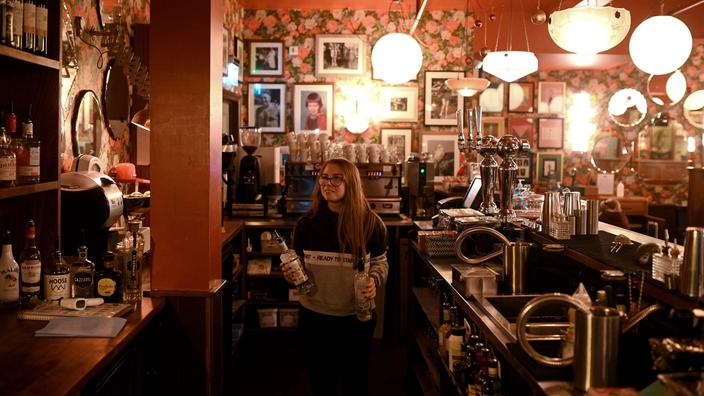England comes out this Wednesday, December 2 from a four-week confinement to return to a regional approach that Prime Minister Boris Johnson hopes to be able to lift in the spring thanks to the combined action of vaccines and mass screening.
It was the second confinement suffered by England, intended to slow down a second wave of coronavirus in the country most bereaved in Europe by the pandemic (more than 59,000 deaths for 1.6 million positive cases).
It is replaced, at least until February, by a three-level alert system, imposing restrictions locally depending on the severity of the epidemic.
Read also: The United Kingdom facing the double penalty of Covid-19 and Brexit at the end of the year
"We must be realistic and we must accept (...) that there is no vaccine yet"
in the deployment phase, which alone will allow a return to normal life, Boris Johnson explained to the House of Commons on Tuesday. Commons, the lower house of Parliament.
"Until then, we cannot afford to slack off, especially during the cold winter months
," he added, justifying the restriction measures.
Among the eases common across England, non-essential stores can once again welcome customers, much to the relief of traders as Christmas approaches, a traditionally good time.
Gyms may also reopen, and church services and weddings resume.
Residents can now meet, up to six, and outside only if their region is affected by the highest level of alert.
Almost all of England, around 55 million people, is placed on Alert Level 2 or 3, except the Isle of Wight, Cornwall and the Isles of Scilly, which are in Level 1, the lowest.
Stores open 24 hours a day
The restrictions (which concern in particular the operation of pubs and restaurants and indoor meetings) are more severe than before the lockdown, which has angered many MPs, including among the Conservative ranks of Prime Minister Boris Johnson.
They fear disastrous consequences for the economy, already weakened since the start of the pandemic, as recently illustrated by the announcement of the bankruptcy of the ready-to-wear group Arcadia, to brands well known to the British.
To support the sector in the Christmas shopping season, the government has decided to give businesses more flexibility for their opening hours, with some chains deciding to operate 24 hours a day.
During the government vote on Tuesday, MEPs from Labor, the main opposition party, chose to abstain.
Their leader, Keir Starmer, considered insufficient financial support from the executive for the most affected areas and expressed doubts about the effectiveness of the new measures in the absence of an effective tracing system.
The government has recognized the
"significant"
economic impact
of the restrictions but stresses that the consequences of an uncontrolled spread of the virus would be
"much worse"
for public health.
Arguments that have not convinced some Conservative MPs, 55 of whom voted against the government plan and 16 others abstained, confronting Boris Johnson with the biggest rebellion within his party since his election.
Read also: Faced with the coronavirus, England is reconfiguring its population
The measures, ultimately adopted by 291 votes to 78, will be reviewed every two weeks, with a first assessment scheduled for December 16.
"This will help preserve the progress made over the past month and keep the virus under control,"
a government spokesperson said on Tuesday evening.
Despite progress against the disease, with a drop in the number of contaminations during lockdown by around a third according to a study by Imperial College London, an easing of restrictions before Christmas is unlikely.
The British will have a Christmas truce, however, with family reunions allowed for five days, from December 23 to 27, without bringing together more than three households.
Boris Johnson is hoping that the spread of screening, coupled with vaccination, will allow the country to emerge from the long tunnel of restrictions in the spring.
In other parts of the UK the strategies adopted vary.
Scotland, for example, also has a system of local restrictions.
Wales, after a 17-day lockdown completed in early November, will force its pubs from Friday to close at 6 p.m. and ban them from selling alcohol, hoping to keep the epidemic under control before Christmas.

